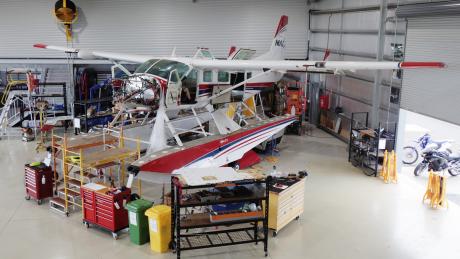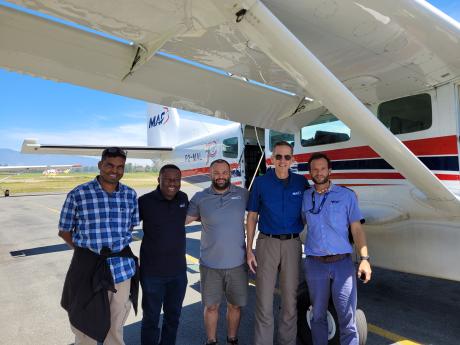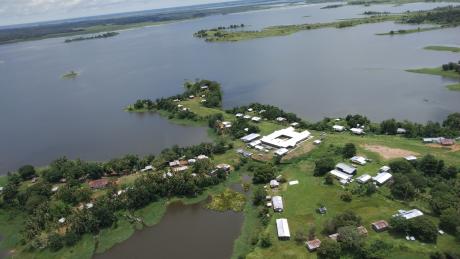
A team surveyed potential landing sites for a plan to improve health care for isolated communities in PNG’s Western Province.
Story by Ashley Leyenhorst
Preparations are under way for Mission Aviation Fellowship to bring a float plane to Papua New Guinea to bring health patrols into the heart of hard-to-reach wetlands areas.
“We’re making available a different platform to deliver in areas where we cannot get a land-based aircraft,” said Doug Miles, MAF PNG Interim Country Director.
The group that went on a multi-day survey trip to Western Province included MAF Asia Pacific Regional Director Samuel Okposin, MAF Float Plane Captain Chad Tilley, MAF Airstrip and Infrastructure Design Engineer Terry Fahey, and Sustainable Development Program’s Chief Operating Officer Satish Moka.

The group visited numerous locations in Western Province including along Lake Murray, the Fly River, several supporting lagoons, and more to investigate possible landing sites.
“If this proof of concept succeeds, the intention is to eventually base the amphib (float plane) at Lake Murray (Boboa),” said Satish. “The lake is favourable for float operations to start.”
Currently, six villages are being considered as start locations on Lake Murray, Lake Hoover, and Khanada Lake. As the team gains more operational experience MAF plans to increase the number of landing sites on lakes and lagoons. River landing sites may also be introduced after a period.
We’re making available a different platform to deliver in areas where we cannot get a land-based aircraft
Each site will require docking infrastructure which vary in size depending on location.
“Docks are used to allow for the mooring of the aircraft and to provide a stable loading and unloading platform for passengers and cargo,” said Terry.
The float plane will provide access for health workers to Western Province communities without land-based airstrips, and those strips that experience seasonally poor conditions.
The patrols currently travel by boat after MAF drops them at the closest grass runway at Lake Murray. This uses the health workers availability poorly, limiting effectiveness to only 2-2.5 days.

“There is a shortage of health workers and we want to optimize their services. If you’re able to just drop them right next door (to the village) instead of a two-hour boat ride, we can increase the (health worker) availability to 3 or 3.5 days,” said Satish.
While MAF’s Balimo base currently serves about fifty airstrips across Western Province, there are further opportunities to reach even more isolated communities, particularly during wet season. Adding a float plane to MAF’s fleet will allow MAF to better support those living isolated along the lakes, rivers, and lagoons of Western Province.